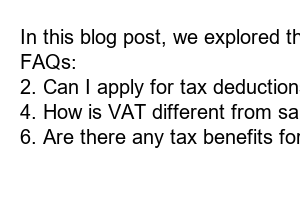국세청 세금포인트
Title: Unraveling the Intricacies of National Tax Service: Essential Tax Points Explained
Introduction:
Taxation forms a fundamental aspect of any modern society, serving as a vital source of revenue for governments worldwide. In every country, including South Korea, the National Tax Service (NTS) diligently ensures the collection of taxes and the implementation of tax regulations. In this blog post, we will explore the key tax points managed by the NTS, shedding light on their significance and impact on individuals and businesses.
1. Personal Income Tax:
Personal income tax is levied on the income earned by individuals, including wages, salaries, and rental income. By adhering to progressive tax rates, the NTS ensures that individuals with higher incomes contribute proportionately more towards the nation’s development and welfare.
2. Corporate Income Tax:
Corporate income tax is imposed on the profits earned by companies. By managing the corporate tax regime, the NTS promotes fairness, discourages tax evasion, and fosters economic growth. The tax rates vary based on the company’s size and income level, with additional considerations for certain industries.
3. Value Added Tax (VAT):
The NTS administers the Value Added Tax (VAT) system, which applies to the sale of goods and services within the country. This consumption tax ensures that taxes are paid at every stage of production and distribution. It plays a crucial role in financing public services and infrastructure development.
4. Customs and Excise Duty:
Customs duties and excise duties are imposed on goods imported into or exported from South Korea. The NTS regulates these duties to protect domestic industries, prevent unfair competition, and ensure compliance with international trade agreements. Excise duties are also imposed on certain goods produced within the country, such as alcohol and tobacco.
5. Property Tax:
The NTS oversees the collection of property tax based on the ownership and value of real estate assets. This tax is essential in supporting local government services and promoting equitable distribution of wealth.
6. Inheritance and Gift Tax:
Inheritance and gift tax is levied on the transfer of assets between individuals, either through inheritance or as gifts. By managing these taxes, the NTS aims to prevent the concentration of wealth and promote social justice, ensuring that the burden of taxation is shared fairly.
7. Tax Treaties and Foreign Transactions:
The NTS has an integral role in negotiating and implementing tax treaties with other countries. These treaties help prevent double taxation and facilitate cross-border transactions, encouraging international investment and business collaboration.
Summary:
In this blog post, we explored the wide spectrum of tax points managed by the National Tax Service in South Korea. From personal income tax to inheritance tax, each aspect plays a crucial role in financing public services, ensuring equality, and fostering sustainable economic growth. Understanding these tax points enables individuals and businesses to comply with tax regulations and contribute to the nation’s development.
FAQs:
1. How do I calculate my personal income tax?
2. Can I apply for tax deductions or credits?
3. What are the tax rates for corporate income tax?
4. How is VAT different from sales tax?
5. What are the customs duties on imported goods?
6. Are there any tax benefits for foreign investors in South Korea?

